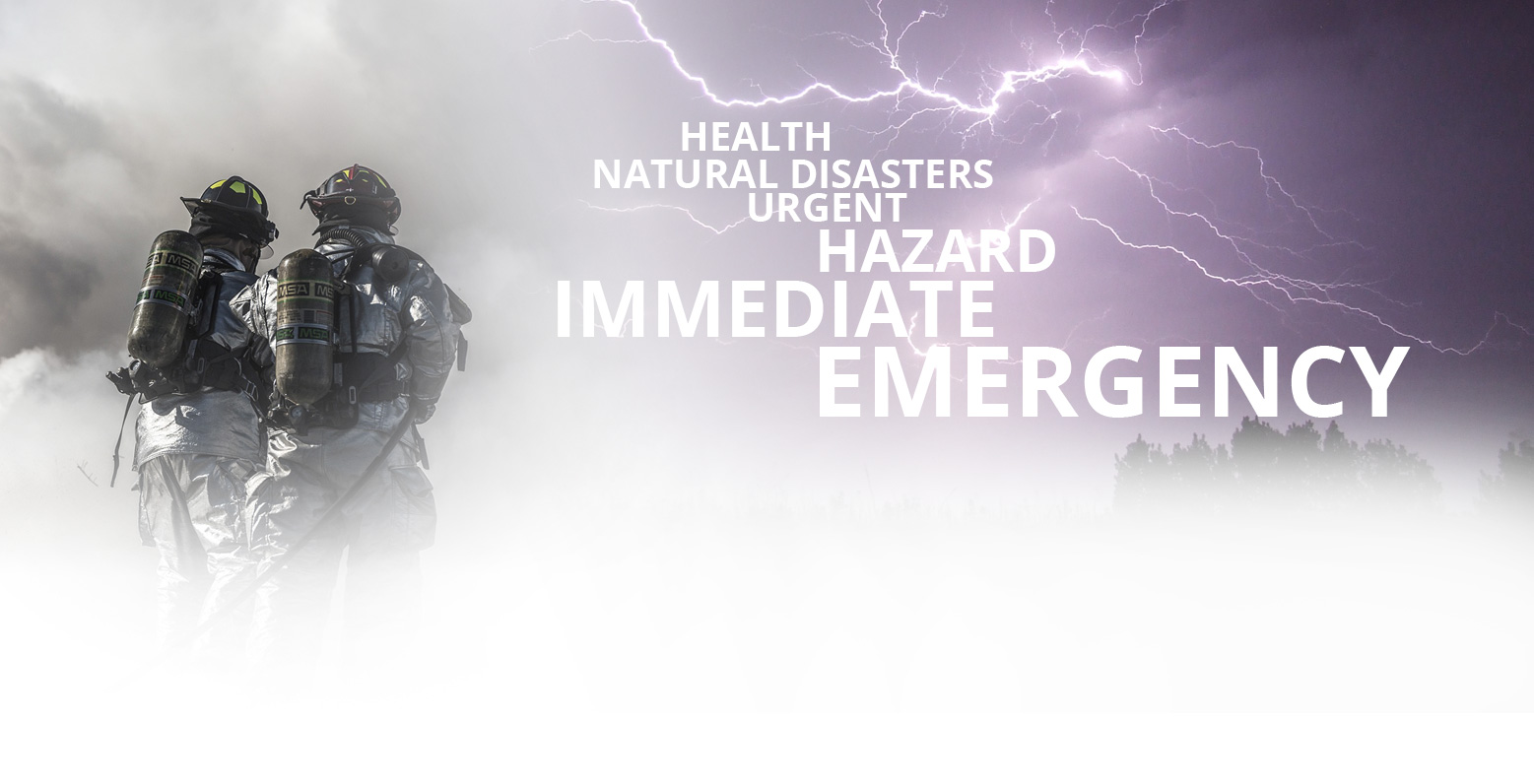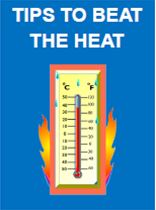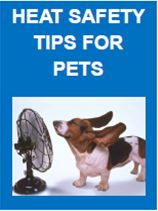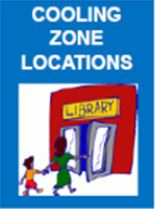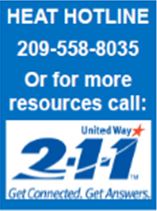
Tips for Preventing Heat-Related Illness
Heat related deaths and illnesses are preventable. Despite this, people are killed by extreme heat every year. This website provides helpful tips, information, and resources to help you stay safe in the extreme heat this summer.
Stay Cool
- Wear Appropriate Clothing:
Choose lightweight, light-colored, loose-fitting clothing. - Stay Cool Indoors:
Stay in an air-conditioned place as much as possible. If your home does not have air conditioning, go to the shopping mall or public library, even a few hours spent in air conditioning can help your body stay cooler when you go back into the heat. Keep in mind: Electric fans may provide comfort, but when the temperature is in the high 90s, they will not prevent heat-related illness. Taking a cool shower or bath or moving to an air-conditioned place is a much better way to cool off. Use your stove and oven less to maintain a cooler temperature in your home. Call your local health department to see if there are any heat-relief shelters in your area. - Schedule Outdoor Activities Carefully:
Try to limit your outdoor activity to when it's coolest, like morning and evening hours. Rest often in shady areas so that your body has a chance to recover. - Pace Yourself:
Cut down on exercise during the heat. If you're not accustomed to working or exercising in a hot environment, start slowly and pick up the pace gradually. If exertion in the heat makes your heart pound and leaves you gasping for breath, STOP all activity. Get into a cool area or into the shade, and rest, especially if you become lightheaded, confused, weak, or faint. - Wear Sunscreen:
Sunburn affects your body's ability to cool down and can make you dehydrated. If you must go outdoors, protect yourself from the sun by wearing a wide-brimmed hat, sunglasses, and by putting on sunscreen of SPF 15 or higher 30 minutes prior to going out. Continue to reapply it according to the package directions. Tip: Look for sunscreens that say "broad spectrum" or "UVA/UVB protection" on their labels, these products work best. - Do Not Leave Children or Pets in Cars:
Cars can quickly heat up to dangerous temperatures, even with a window cracked open. While anyone left in a parked car is at risk, children are especially at risk of getting a heat stroke or dying. When traveling with children, remember to do the following: To remind yourself that a child is in the car, keep a stuffed animal in the car seat. When the child is buckled in, place the stuffed animal in the front with the driver. When leaving your car, check to be sure everyone is out of the car. Do not overlook any children who have fallen asleep in the car. - Avoid Hot and Heavy Meals:
They add heat to your body! - Swim Safe:
Only swim in a safe place and stay away from canals. Canals are not safe places for anyone to play around or swim in, big or small, young or old! Before swimming in rivers, check the river conditions to ensure that it is safe. Rivers run fast and cold in the spring and early summer and are not safe for swimming. Please visit the California Nevada River Forecast Center for up to date flow and temperature information. Never swim alone. When at lakes or reservoirs, follow rules set up by the authorities. Always wear a life vest while boating or on the lake or out on the ocean. Obey all hazard signs, they are there to save lives.
How Fast Can The Sun Heat a Car? Click here to watch the video
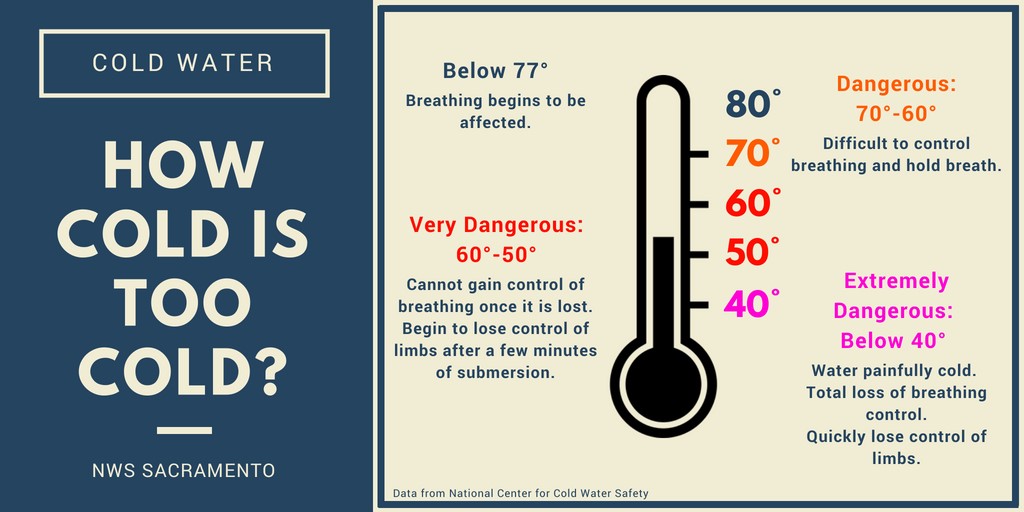
Stay Hydrated
- Drink Plenty of Fluids:
Drink more fluids, regardless of how active you are. Don't wait until you're thirsty to drink.
Warning: If your doctor limits the amount you drink or has you on water pills, ask how much you should drink while the weather is hot.
Stay away from very sugary or alcoholic drinks, these actually cause you to lose more body fluid. Also avoid very cold drinks, because they can cause stomach cramps. - Replace Salt and Minerals:
Heavy sweating removes salt and minerals from the body that need to be replaced. A sports drink can replace the salt and minerals you lose in sweat.
If you are on a low-salt diet, have diabetes, high blood pressure, or other chronic conditions, talk with your doctor before drinking a sports beverage or taking salt tablets. - Keep Your Pets Hydrated:
Provide plenty of fresh water for your pets and leave the water in a shady area.
Stay Informed
- Check for Updates:
Check your local news for extreme heat alerts and safety tips. A list of cooling zones can be found here. - Know the Signs:
Learn the signs and symptoms of heat-related illnesses and how to treat them. - Use a Buddy System:
When working in the heat, monitor the condition of your co-workers and have someone do the same for you. Heat-induced illness can cause a person to become confused or lose consciousness. If you are 65 years of age or older, have a friend or relative call to check on you twice a day during a heat wave. If you know someone in this age group, check on them at least twice a day. - Monitor Those at High Risk:
Although anyone at any time can suffer from heat-related illness, some people are at greater risk than others:
- Infants and young children
- People 65 years of age or older
- People who are overweight
- People who overexert during work or exercise
- People who are physically ill, especially with heart disease or high blood pressure, or who take certain medications such as for depression, insomnia, or poor circulation
- Visit adults at risk at least twice a day and closely watch them for signs of heat exhaustion or heat stroke. Infants and young children, of course, need much more frequent watching.
For more information please visit:
The Centers for Disease Control and Prevention at www.cdc.gov/disasters/extremeheat.
The National Weather Service in Sacramento at www.weather.gov/safety/heat.
Current river flows can be found here.
Current river water temperatures for Stanislaus County can be found here.
Copyright © Stanislaus County, California 2023


